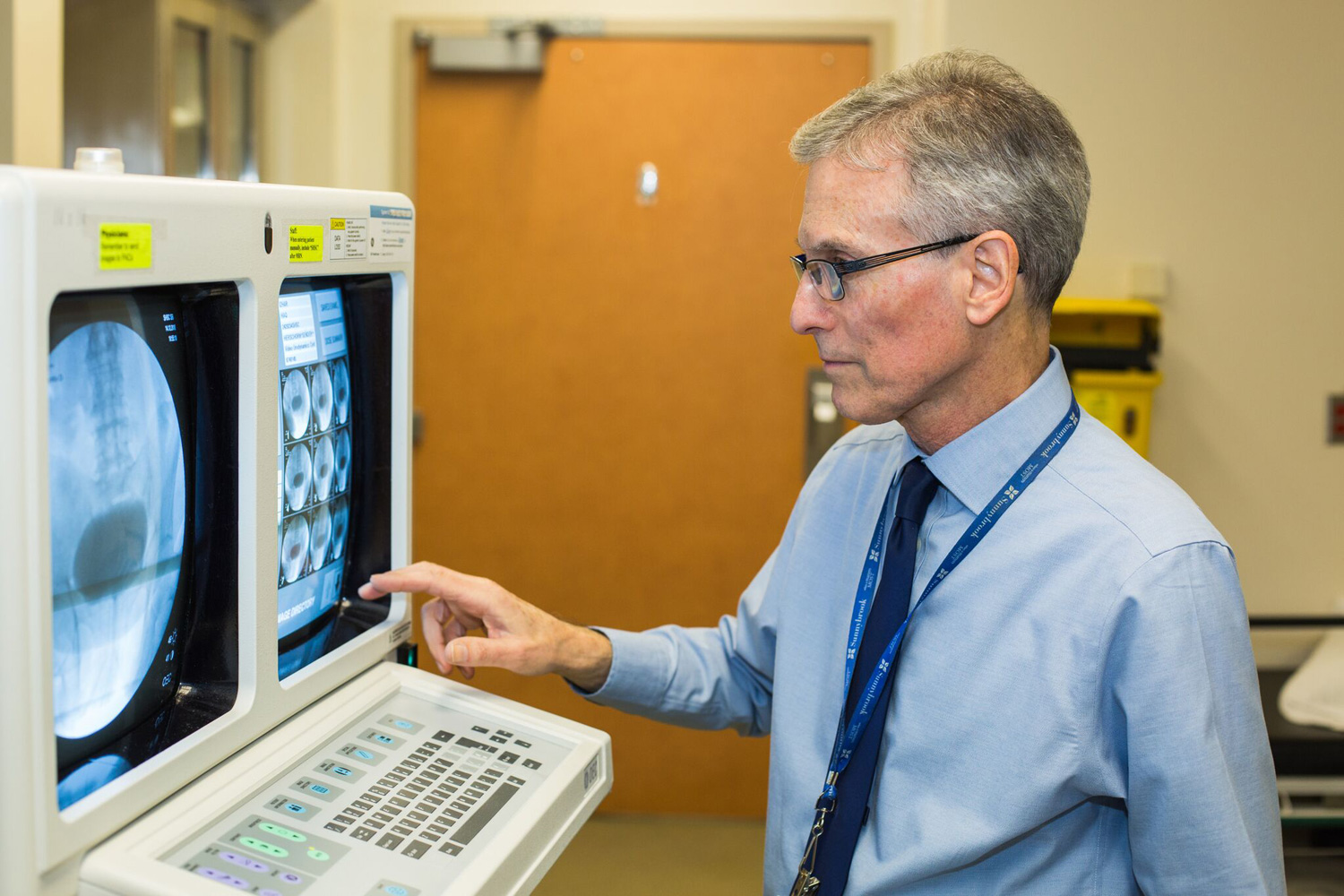A $2-million donation launches a city-wide urology research program
With support from Astellas Pharma Canada, Inc. and patient Siggy Levy, Professor Sender Herschorn hopes to bring a sensitive subject out of the shadows.
Posted on February 1, 2017
We’re pretty open in talking about disease these days. But there is one thing – specifically what happens when our bladder fails to function properly — that we still keep to ourselves. But problems such as urinary incontinence or other bothersome lower urinary tract symptoms are major impairments that can have a huge impact on quality of life.
“This area of medicine doesn’t receive a lot of air time,” says U of T surgery professor Sender Herschorn, a urologist at Sunnybrook Health Sciences Centre. “But the number of people affected is only growing. For example, a man or woman who has had surgery or radiation for a pelvic cancer may be left with urinary incontinence. And we have very different levels of care across the health-care system in Ontario — everything from diapers or pads to full reconstructive surgery.”
Herschorn wants to pull this sensitive field out of the shadows. With a donation of $2 million — half from a patient and half through an unrestricted donation from Astellas Pharma Canada, Inc. — he has launched the University of Toronto Research Program in Functional Urology. The first city-wide research program of its kind, it brings together health leaders from across the U of T’s health sciences network and the Institute for Clinical Evaluative Sciences (ICES) to gain a big-picture understanding of how patients are currently treated across our health system, how well they recover and where there are gaps in care that need to be addressed.
World-class leaders and students will collaborate on data analysis
Functional urology is a complex subspecialty of urology, focused on lower urinary tract disorders related to cancer treatment, traumatic injury, neurologic disorders, female incontinence and pelvic floor dysfunction, male lower urinary tract symptoms related to ageing as well as congenital pediatric conditions that continue into adulthood. These problems are extremely common and affect people of all ages.
“By collecting these data we should be able to make informed recommendations and decisions about how to improve care,” says Herschorn. “We’ll be using administrative data, and tracking the care patients are receiving. Ultimately, we should be able to develop a better system-wide infrastructure.”
The program’s advisory council includes U of T professors and urology specialists Drs. Lesley Carr and Robert Nam from Sunnybrook Health Sciences Centre, Sidney Radomski from the University Health Network, Armando Lorenzo from the Hospital for Sick Children and scientist and analyst Refik Saskin from ICES. Urology residents and research fellows will also participate as part of their postgraduate degree programs.
“These are leaders in the field,” says Fran Paradiso-Hardy, Senior Director of Medical Affairs at Astellas Pharma Canada. “Our mandate is to support excellence in research, and U of T’s world-class researchers and connections to major health centres and to ICES will set this project up for success.”
This funding will help prioritize research within busy clinical schedules. “These doctors are so busy trying to see all their patients,” says Siggy Levy, the patient of Herschorn’s who is helping fund this initiative. “Too often they don’t have time for research, but it’s research that’s going to push health care forward.”
Help for patients with devastating conditions
There’s a lot at stake. Lower urinary tract disorders can be devastating. In fact, recent survey results published in the Journal of the American Medical Association found that of 180 patients hospitalized with serious illnesses, 69 per cent considered bowel and bladder incontinence to be worse or equal to death. But it’s not only hospitalized patients who are affected by urinary incontinence. Surveys have shown that many women and men living in the community suffer in silence. The research program aims to identify the unmet needs and knowledge gaps in this area.
At the other end of the spectrum, young children with spinal abnormalities and urinary dysfunction may receive comprehensive and specialized care as children, but might not get the follow up they need after transitioning into adulthood. Research is now being conducted to track these patients and document the problems they face. The results could provide the groundwork for a potential systematized transitional care process in Ontario.
Another issue is the varying standards of care across the system when it comes to urinary incontinence after pelvic cancer therapy. Herschorn gives an example of one of his patients whose radiation for prostate cancer had caused a break in the wall of his rectum, and urine was leaking through. Although the cancer treatment was a success, the patient could well have ended up with two bags — a urinary diversion and a colostomy. Instead, over two lengthy reconstructive operations, Herschorn was able to repair the damage. With the new research program, these and more commonly seen incontinence problems are also being tracked and measured.
“We’re focused on systematically improving our knowledge about these common problems,” says Herschorn. “If we can get a better idea of different outcomes and treatment standards across the system, I hope we can start making changes that will improve our patients’ lives.”

